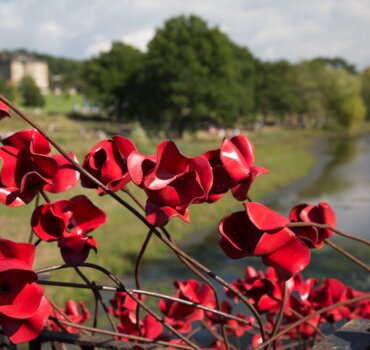
 The sacrifice of the very best of our young men and women in the First World War, at Gallipoli, and in subsequent conflicts must not be forgotten. The importance to our local and national consciousness in the recent Anzac Day commemorations country-wide cannot be understated.
The sacrifice of the very best of our young men and women in the First World War, at Gallipoli, and in subsequent conflicts must not be forgotten. The importance to our local and national consciousness in the recent Anzac Day commemorations country-wide cannot be understated.
On August 4, 1914, Great Britain declared war on Germany. The next day Lord Liverpool announced the news from the steps of our New Zealand Parliament. Most New Zealanders regarded themselves as British so there were few doubts about their fulfilling their obligations to the Empire in its moment of crisis. Germany’s invasion of Belgium, another small country, also struck a chord with many New Zealanders.
For our Waipā region, there are a number of contexts, various narratives, that are also worthy of note. Many Māori of the region also leapt to the support and defence of ‘freedom, and our enjoyment of our democratic way of life’. Amongst Ngāti Maniapoto, a considerable number of their young men were eager to enlist. This despite the ‘Battle of Ōrākau’ a mere 50 years beforehand, and the fact that there were a significant number of Maniapoto survivors of that engagement who were witness and party to the declaration, “Friend, we will fight you forever, and ever, and ever!”
The Māori King Te Rata was in London when War was declared, having enjoyed an audience with King George V, and, by all reports, was very cordially received. He saw from his hotel balcony in London the uproar on the streets of London, and the bustle of preparations for war, recording in his diary ‘Kua pōrangi te ao Pākehā!’ Which could be interpreted as ‘The European World is in turmoil.’ Or, less kindly, ‘The European World has gone crazy!’
Maniapoto elders suggested to their young men that they might wait until the King returned from England, and seek his counsel before enlisting. On the King’s return a number of them met with him and their query was met with the response, “Mā te hiahia.” That it should be left to the individual conscience. He knew that many of these young men felt a loyalty to their Pākehā ancestry. Also, a number of them, felt an obligation to those of their ancestors who had signed Te Tiriti o Waitangi, and as citizens, they were compelled to fulfill that obligation.
Others were already of no doubt that what the British Empire had wrought on their forebears was not to be forgotten, nor forgiven, and so the struggle as promised at Ōrākau would never end.
According to one family story, one young Maniapoto hero enlisted and found himself at Gallipoli, a sniper. He was wounded and spent some time recupera-ting in England and met a number of his Pākehā relations while there. Later he served in the campaign in France, and returned home when the war ended. He shared with his family the reflection that some years after the war he realised that his intention in enlisting was to defend ‘freedom and our enjoyment of our democratic way of life.’ However at Gallipoli, he was the invader. And that the Turks were defending their ‘freedom and enjoyment of their way of life’. The students from Ōtorohanga College whose petition has played a major role in the introduction of New Zealand History as a part of the Core Curriculum in New Zealand Schools recognised the catch-cry of Anzac Day, ‘Lest We Forget’ with their call, ‘We must remember’.
It is a truism that very often we are selective in what we remember, and what we forget. However, to remember, or to forget is only a choice if we are given the opportunity to learn a narrative and to ponder on the merits of whether to remember or to forget it.








